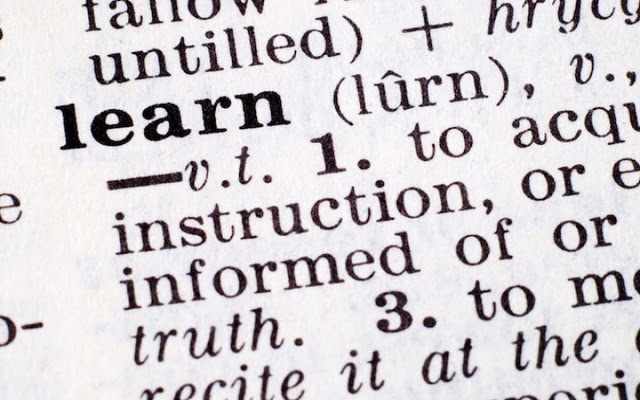
What do “carbon footprint,” “webisode,” and “staycation” all have in common? These three words are new additions to Merriam-Webster’s Collegiate Dictionary.
Merriam-Webster is often asked how a new word gets added to the dictionary. The answer is simple: the word gets used.
When deciding which new words or phrases to include in an updated version of the dictionary (and how to define each one), editors study the language in use. This includes examining which words and phrases people use most frequently and how they use them.
Most editors at Merriam-Webster spend some time each day reading various books, newspapers, magazines, and online publications. While reading, they keep an eye out for new words or phrases, new spellings, and new uses of existing words or phrases.
When editors come across something interesting, they make a note of the word or phrase and gather information that explains its usage and meaning. This process is known as “reading and marking.”
Once a new word or phrase has been marked, editors enter it into a computer system. They also create a “citation,” which includes three components: the word or phrase, an example of the word or phrase used in context, and bibliographic information about its source (such as the magazine or newspaper it appeared in).
When a word or phrase becomes a citation, it becomes a contestant in a contest. However, there is no guarantee that a citation will be added to the dictionary. Before a new word can be included in the dictionary, editors must find enough citations to demonstrate that it is widely used.
Having numerous citations, though, does not guarantee acceptance into the dictionary. If the citations do not provide a clear definition of the word or phrase, or if all the citations come from one source, it may be rejected.
New words or phrases must be found in multiple citations from a wide range of publications over a significant period of time in order to be included in the dictionary.
In case you’re curious, here are the definitions of the new words and phrases introduced at the beginning of this article:
- carbon footprint: the amount of greenhouse gases (specifically carbon dioxide) emitted by something during a given period.
- webisode: an episode of a show that may or may not have been telecast but can be viewed on a website
- staycation: a vacation spent at home or nearby
Try It Out
The dictionary adds a few new words and phrases each year, but there are thousands of words in the dictionary that may be unfamiliar to you. Creating your own Word of the Day Dictionary is a great way to expand your vocabulary.
Creating your dictionary is simple. Just visit Merriam-Webster’s Word Central website for the Daily Buzzword. You’ll become the king or queen of the spelling bee in no time!
Once you discover your buzzword, write it down along with its definition. When you’re done, add a drawing to help others understand what the word means.
FAQ
1. How are words selected to be added to the dictionary?
Words are selected to be added to the dictionary based on their frequency of use and their cultural significance. Lexicographers, who are responsible for compiling dictionaries, analyze a vast amount of written and spoken language to identify words that have become widely accepted and are regularly used by native speakers. They also take into account the relevance and importance of a word to the language’s vocabulary. Words that have a distinct meaning and are not simply a variation or combination of other existing words are more likely to be added to the dictionary.
2. Who decides which words are added to the dictionary?
The decision of which words are added to the dictionary ultimately lies with the team of lexicographers who work for the dictionary publisher. These experts review and evaluate potential new words based on their usage, popularity, and cultural significance. They also consider suggestions from the general public and monitor language trends to ensure the dictionary remains relevant. The process involves rigorous research, analysis, and debate among lexicographers before a word is deemed suitable for inclusion in the dictionary.
3. How long does it take for a new word to be added to the dictionary?
The time it takes for a new word to be added to the dictionary can vary. It depends on factors such as the word’s prominence, frequency of use, and cultural impact. In general, it can take several years for a word to gain enough recognition and acceptance to be considered for inclusion. The process of researching and verifying a word’s usage and significance is time-consuming. Additionally, the dictionary publisher may have specific guidelines and criteria that need to be met before a new word is officially added.
4. Can anyone suggest a word to be added to the dictionary?
Yes, most dictionary publishers welcome suggestions from the general public for new words to be added to the dictionary. They have dedicated channels, such as online forms or email addresses, where individuals can submit their suggestions. However, it’s important to note that not all suggested words will be accepted. The lexicographers carefully evaluate each suggestion based on its usage, popularity, and cultural relevance. They also consider whether the word has already been widely recognized and used by native speakers or if it is simply a niche or fleeting term.





Leave a Reply